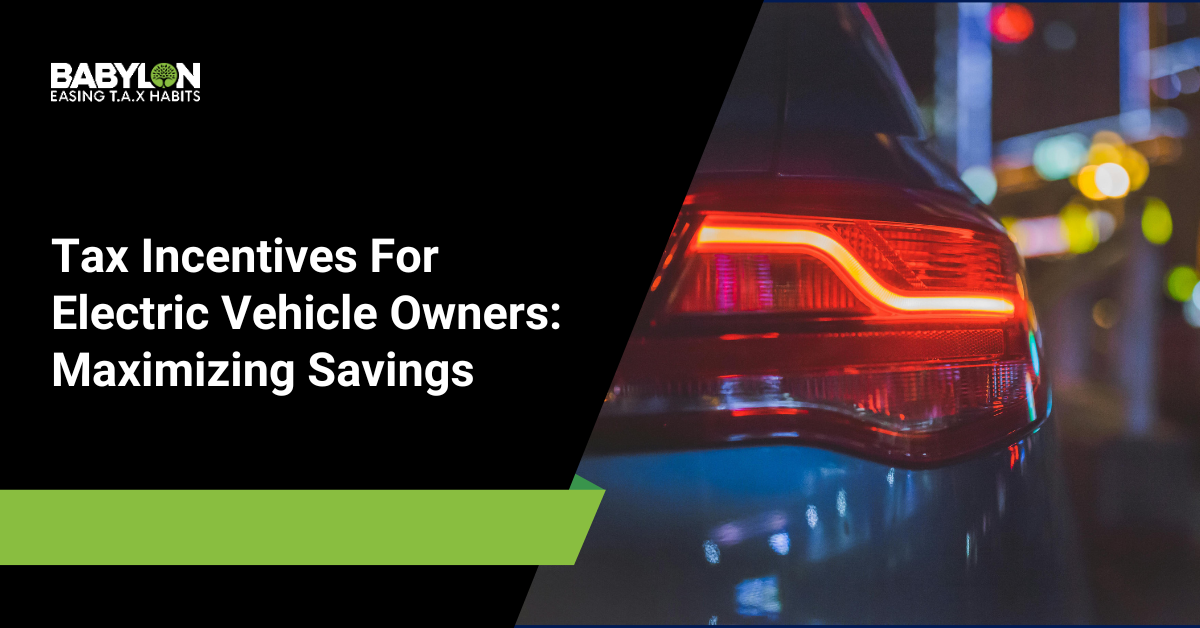Switching to electric vehicles (EVs) is more than just a trend—it’s a power step towards a greener future.
Thanks to recent expansions in EV incentives in the Philippines, owning an EV is now more affordable than ever, with tariffs on EVs reduced to 0% until 2028. These tax incentives make it easier to reduce the cost of purchasing an EV. They also help support sustainable living and cut down on carbon emissions.
In this blog post, we’ll explain the latest incentives, share tips to save more and look at the extra financial benefits of owning an EV.
What are Electric Vehicles?
Electric vehicles (EVs) are vehicles powered by electric motors rather than traditional internal combustion engines. Unlike gasoline or diesel-powered cars, EVs run on electricity, making them more environmentally friendly by producing zero tailpipe emissions.
In the Philippines, the adoption of electric vehicles is steadily increasing due to rising fuel costs, environmental concerns, and government initiatives. The country’s Electric Vehicle Industry Development Act (EVIDA) promotes EV usage. It offers incentives and infrastructure development like charging stations to encourage more Filipinos to switch to electric vehicles.
The push for EVs aligns with the Philippines’ goal of reducing carbon emissions and dependence on imported fossil fuels.
What are the Tax Incentives for Electric Vehicles?
The Philippine government provides various tax incentives for electric vehicles—making them more affordable and accessible. These incentives, including zero tariffs and excise tax exemptions, are aimed at promoting greener transportation and supporting sustainable development.
Zero Tariffs on Electric Vehicles
Regular vehicles in the Philippines are subject to import tariffs ranging from 5% to 30%, depending on the vehicle’s type and origin. However, the tariffs on electric vehicles (EVs) have been reduced to 0% until 2028. This move makes EVs more affordable and encourages their adoption across the country.
This applies to various types of EVs, including e-motorcycles, e-bicycles, e-tricycles, hybrid electric vehicles (HEVs), and plug-in hybrid electric vehicles (PHEVs).
Excise Tax Exemption
Fully electric vehicles are exempt from excise taxes under the TRAIN law, significantly lowering their purchase price. This exemption only applies to fully electric vehicles, so buyers can save a substantial amount upfront. Hybrid vehicles also benefit from a 50% reduction in excise taxes, making them a more budget-friendly option.
Regular passenger cars in the Philippines face excise tax rates from 4% to 50%, based on their price. Vehicles priced at ₱600,000 or less are taxed at 4%. Cars valued between ₱1 million and ₱4 million incur a 20% tax, while those costing ₱4 million or more are taxed at 50%.
Read More: What are the Different Types of Electric Vehicles in the Philippines?
Reduced Import Duties
Import duties on EV parts, components, and completely knocked down (CKD) EVs have been lowered. This incentivizes companies to assemble or manufacture EVs in the Philippines, deepening the local manufacturing sector. The reduction in duties helps lower the cost of EVs and boosts the local economy by creating jobs.
Incentives for EV Charging Stations
The government provides tax incentives for the installation of EV charging stations. These incentives aim to build a robust charging infrastructure across the country. By reducing the cost of setting up charging stations, these incentives support the widespread adoption of EVs.
Income Tax Holiday and Special Corporate Income Tax Rates
Businesses involved in EV-related activities can enjoy an income tax holiday for 4 to 7 years under the Corporate Recovery and Tax Incentives for Enterprises Act (CREATE) Act.
Additionally, after the income tax holiday, the business may be entitled to either a special corporate income tax (SCIT) rate of 5% or enhanced deductions from the gross income. These incentives encourage investment in the EV industry and support the growth of green technology.
Exemption from Number Coding and Priority Registration
Under the Electric Vehicle Industry Development Act (EVIDA), EV owners are exempt from “number coding” road congestion measures. They also get priority in the registration and renewal with the Land Transportation Office (LTO). These perks make daily commuting more convenient for EV owners.
Special License Plates for EVs
EVs are issued special license plates under the EVIDA law. This not only distinguishes them on the road but also provides certain benefits like access to exclusive parking spots. The special plates symbolize the government’s support for green technology and the transition to cleaner transportation.
Strategies to Maximize Tax Savings for Electric Vehicle Owners
To make the most of tax incentives for electric vehicles, here are some strategies to consider:
Time Your Purchase
Timing your EV purchase can help you get the most out of available incentives. Since tax exemptions and benefits can change with new government policies or budget limits, it’s smart to buy your EV before any changes take effect. Acting quickly is also key if incentives are limited or offered on a first-come, first-served basis, ensuring you don’t miss out on savings.
Explore Local Incentives
Local incentives can further reduce the cost of owning an electric vehicle. These may include tax exemptions, lower import duties, and support for installing EV charging stations.
By looking into what your local government offers, you can combine these with national benefits like the excise tax exemption under the Tax Reform for Acceleration and Inclusion (TRAIN) Law to cut down your EV costs. For instance, some cities might offer extra perks like reduced registration fees, adding to your savings.
Understanding Eligibility Requirements
Lastly, it’s important to know the eligibility criteria for each incentive to maximize your savings. Not all EVs or buyers qualify for every incentive.
For example, the excise tax exemption under the TRAIN law is only for fully electric vehicles, and some incentives may be limited to certain regions or income levels. Checking the specific requirements ensure that you can claim the benefits you’re entitled to, helping you make the most of your EV purchase.
What are the Benefits of Electric Vehicles Beyond Tax Incentives?
Tax incentives are just part of the financial benefits of owning an EV in the Philippines. EVs offer long-term savings on fuel and maintenance, along with additional perks.
Lower Fuel Costs
Electric vehicles are cheaper to fuel than traditional gasoline vehicles. Since EVs run on electricity, which generally costs less than gasoline or diesel, you can expect lower monthly fuel expenses. Charging your EV at home is usually the most economical option, making EVs a cost-effective choice over time, especially with rising fuel prices in the Philippines.
Reduced Maintenance Costs
EVs have fewer moving parts than traditional cars, leading to lower maintenance costs. They don’t need oil changes, and their braking systems last longer thanks to regenerative braking technology. This means fewer maintenance needs and additional savings for EV owners, making EVs more economical in the long run.
Access to Exclusive Perks
Owning an EV can also offer exclusive perks like reduced toll fees, free parking in some areas, and access to special lanes during traffic. These benefits not only save money but also make daily commuting more convenient, adding to the overall value of owning an EV.
Promote Green Economy
Electric vehicles (EVs) contribute significantly to promoting a green economy by reducing greenhouse gas emissions and improving air quality. According to the International Energy Agency (IEA), transitioning to EVs could lead to a reduction of 1.5 gigatons of CO2 emissions by 2030 globally. By fostering the growth of the EV market, countries can create green jobs and stimulate innovation in clean technologies
FAQs
Do electric vehicle tax incentives apply to both new and used vehicles?
No, the recent updates to Executive Order No. 12 primarily cover new EVs, not used ones. Make sure to check local regulations for details on used vehicles.
Are there income limitations for claiming electric vehicle tax incentives?
Income limits for EV tax incentives in the Philippines can vary. While specific income thresholds aren’t always outlined, eligibility criteria may differ by program. It’s a good idea to review the guidelines and consult with a tax professional to understand your eligibility.
Make the Most of Your EV Investment with Babylon2k
If you’re thinking about investing in an electric vehicle, now is the perfect time to use tax incentives and save money.
For expert advice on getting the most from your EV, contact us at Babylon2k. We offer tax services to help you understand these incentives and maximize your benefits.
We also offer specialized consultation services to guide your EV investment and ensure you make the best financial choices.
Get a quote today, and let’s drive toward a greener, more cost-effective future.
For more inquiries, message our AI chatbot, email us at [email protected], or contact us via Viber/WhatsApp at +63-927-945-3382.






